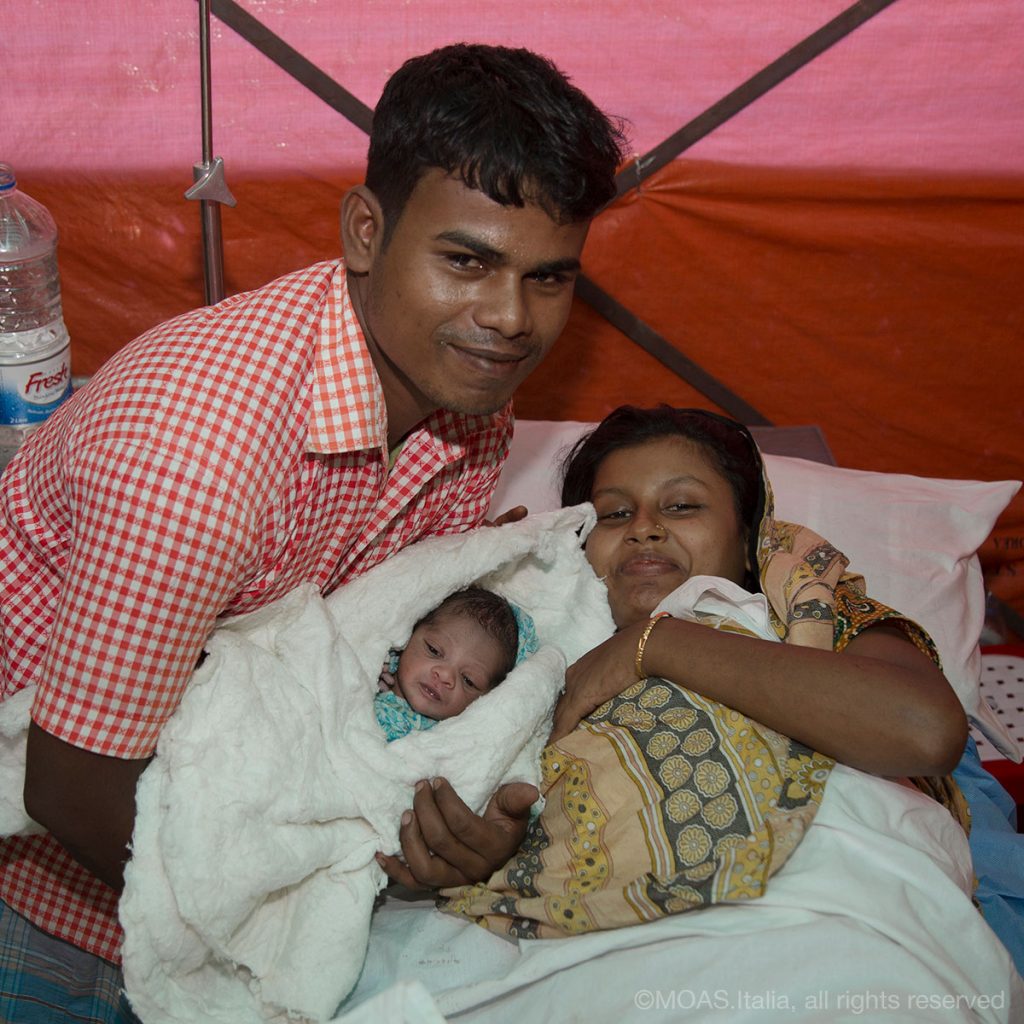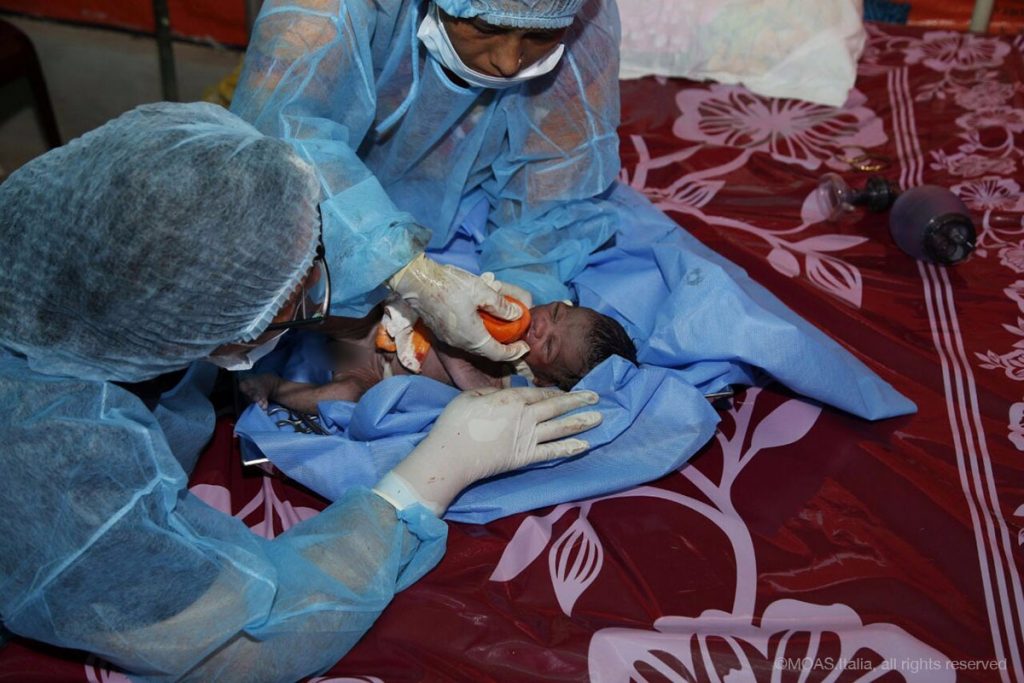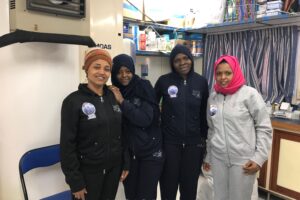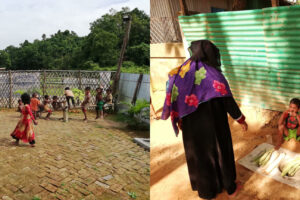In less than one month it will be Christmas, when we will celebrate the miracle of life through Jesus who was born to spread a message of universal peace and brotherhood. On that day we will also recall the tragic circumstances that forced his parents to flee and Mary to deliver her baby in a small, isolated stable. However, in our day-to-day lives we fail to devote the same attention to the miracle of life, and we do not understand the desperate journeys of those forced to flee. Since the inception of MOAS’ mission to bring humanitarian aid and medical assistance to Rohingya refugees and host communities in Bangladesh, we have witnessed the continuing humanitarian crisis and recognized how vital our work is. Up to 60% of the Rohingya refugee population are children, while there is also a great number of women, among them a high percentage of pregnant women and new mothers. Many of them have never seen a doctor and must go through their pregnancy in tragic circumstances.

Many women are exhausted when they arrive due to the lack of food, the violence experienced and the enormous stress caused by their journey. Every day I see their determination to survive, their strength and their courage, pushing them to face every danger just to find a safe place for their children. As a mother, I remember my pregnancy, in which I was supported by my family and assisted by a doctor, and then I look at those women or very young girls who have experienced violence and abuse. In their eyes you can still see fear and terror, but hope is deeply rooted in their hearts. I look at their children, and I firmly believe that they deserve a peaceful future, just like any other child on earth.
This is why I am happy that MOAS – being a humanitarian organisation created to mitigate human suffering – decided to bring medical assistance and humanitarian aid to such a remote and neglected area of the world. Both Rohingya and Bangladeshi communities are facing an unprecedented crisis, which is challenging the international community as a whole.
Bangladesh is a middle-lower income country whose citizens often leave to search for better job opportunities, but it has opened its arms and hearts to welcome people running for their lives. Bangladesh is often affected by natural disasters, which exacerbate the dire living conditions in the country, but has nevertheless decided to share its resources with those in need. So, on November 10th we opened our second Aid station in Unchiprang, and while our medical team was visiting our first patients, on November 12th the first baby was delivered at the MOAS Aid Station in Shamlapur.
Shamlapur was our first Aid Station, opened on October 14th. This newborn baby was not just a moment of profound joy, but also a test for our medical team and the emergency response training done over the last months. The baby’s parents, Shafiul and Nurunnahar, aged 30 and 22, were so pleased that we were there to take care of them, and Shafiul was very grateful for the assistance given to his wife and baby, who were both doing very well soon after the delivery.
Despite being far from Shamlapur, I felt the warmth and happiness of the entire MOAS team who welcomed this new life and wished the baby a prosperous future. Moreover, this new life born into a bleak situation within a persecuted community was a shining light for the MOAS mission, as well as being a blessing for our continuing work on the ground. This baby, delivered on a sunny Sunday, seems a lovely preamble to Christmas, and provides an occasion to celebrate the irrepressibility of life and its way of overcoming all barriers.

This post was originally published by the Italian magazine VITA
Please click here to read the Italian version



